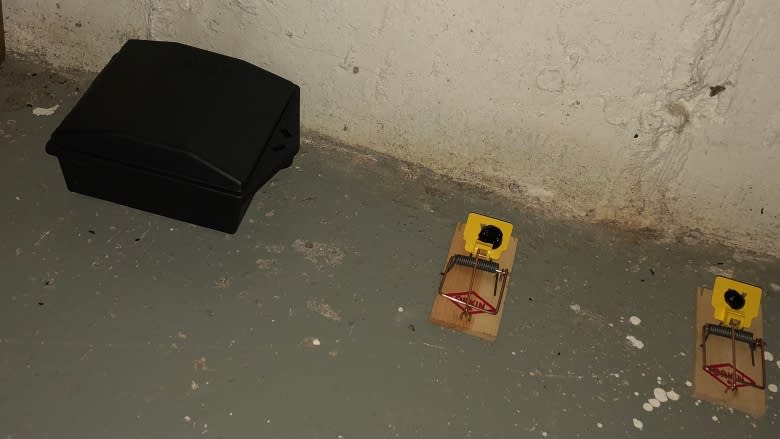Thirsty mice are this summer's unwanted house guests
When Émilie Couture arrived home jet-lagged from Europe a week ago, her brother welcomed her with some unwanted news.
He told her he'd discovered mice droppings in their south Ottawa home, and could hear the tiny rodents scurrying around under the kitchen sink.
Couture said she was going to bed and would deal with the situation in the morning — and that's when the reality set in.
"Your skin starts crawling, and there's not enough hot showers in the world," she said.
"No matter how much you clean, you never really feel clean. Because you turn around and there's new droppings — and you say, 'Come on, I just vacuumed [there]!''
Calls up over 2017
Couture's experience is becoming increasingly common: the city of Ottawa says it received 88 service requests for mice in dwellings between June 1 and July 20 of this year.
In an email, Roger Chapman, the city's director of bylaw and regulatory services, said that there were 55 calls during the same period in 2017 — and only 47 in 2016.
This summer's dry weather means mice are showing up much earlier in people's homes than they normally would, said Rob Caron, the Ottawa branch manager with Orkin Pest Control.
"This is probably one of the worst years, and it's giving us a real increase in rodent activity in Ottawa," said Caron, who's been helping people deal with their mice problems for the past 25 years.
Caron said the drought-like conditions have led to a 20 to 25 per cent increase in service calls this summer.
"There is a lack of water outdoors," he said. "[Mice] prefer to live outdoors but will seek shelter indoors when they can't find water outside."
Seal window screens, plug holes
Caron said the majority of calls he's received over the past month are from homeowners like Couture who've never had a problem with mice before. He said he's had to hire an extra student for the summer to help with all the exterminations.
He advised people to make sure their window screens are properly sealed and to plug up any holes on the outside of their homes, no matter how small.
Mice can get through a crack or a crevice the size of a dime, Caron said.
At Couture's home, her exterminator found several small holes in a wooden beam just above the stucco foundation wall. He filled it with copper mesh, because mice find it sharp and bitter when they bite into it.
In her basement there are now three bait boxes and eight mouse traps along the edge of the wall.
Couture said she's not excited about finding dead mice in the traps, but after reading about the potential health hazards they pose she's happy to get rid of them.
"Those are the rabbit holes you don't want to fall into on the internet, when you start to read about all the dangers that come with mice and their droppings," she said.
"I made that mistake and regretted it immediately."




